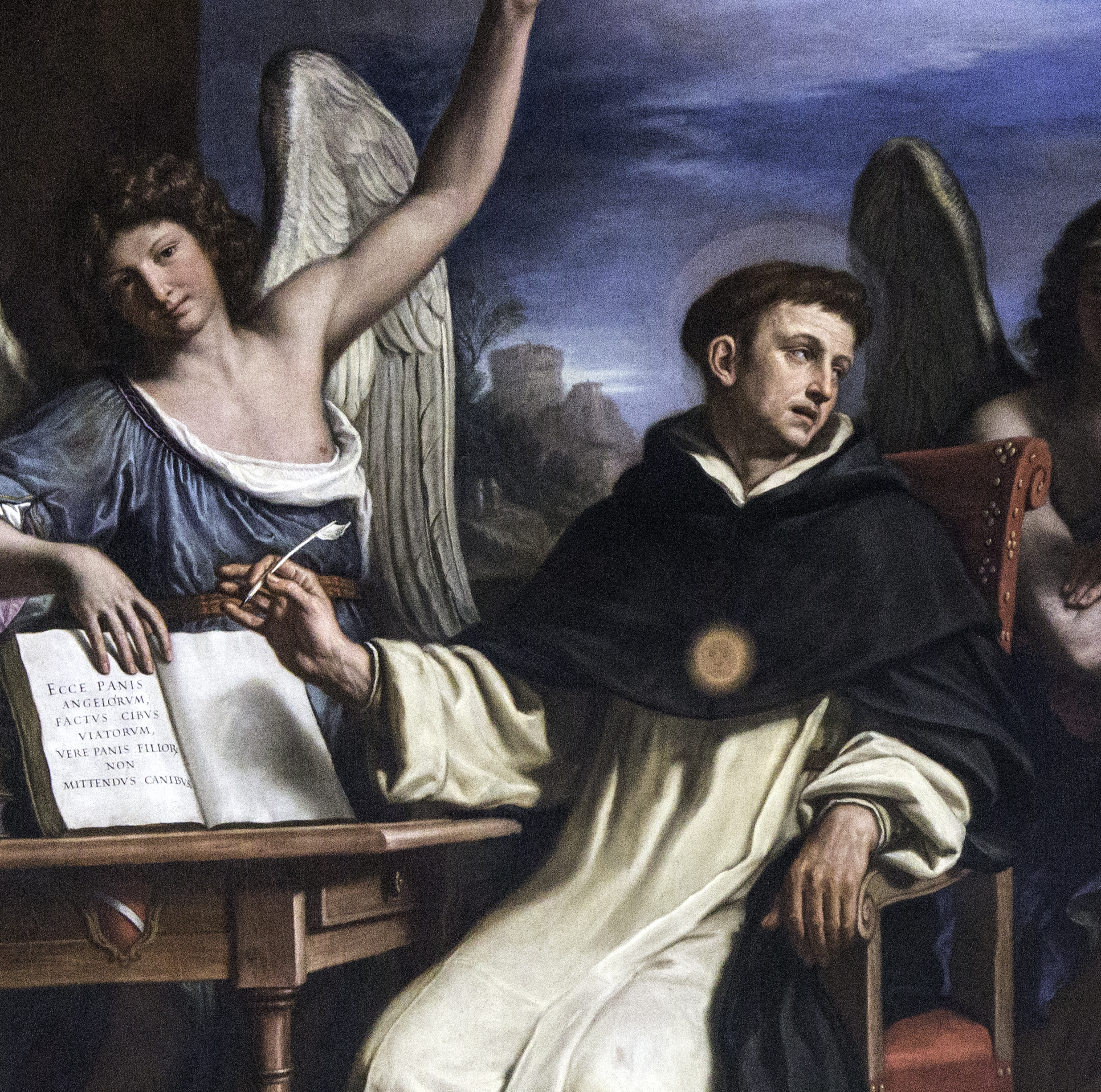Chapter 38: The Sacraments In General¶
The precision given by St. Thomas to sacramental doctrine is best seen on three important points:
a) the efficacious causality of the sacraments.
b) their matter and form.
c) their raison d’etre.
The sacraments of the New Law are efficacious signs, which produce grace of themselves (ex opere operato): by a causality that is physical and instrumental. 893 In the sacraments, he says, 894 there is an instrumental power which produces the sacramental effect. Again: 895 The principal efficient cause of grace is God Himself, who has, as conjoined instrument, 896 the humanity of Christ, and, as separated instrument, 897 the sacrament itself. These texts, in themselves and in their context, are entirely clear, and all Thomists, Melchior Cano excepted, hold that the sacraments are physical, instrumental causes of grace. The word itself, “physical,” is not, it is true, in the text of St. Thomas, but “instrumental” in his mind means real causality which is distinct from the moral order.
St. Thomas applies to the sacraments analogically the theory of matter and form, giving precision to the teaching of William of Auxerre and Alexander of Hales. We see, in fact, an analogy, in the order of signification, between sacramental words and form. As form determines matter, so the sacramental words determine the signification of the sacramental thing, for example, the baptismal ablution. Thus absolution is the form of penance, which has as matter the exterior acts of the penitent. As regards matrimony (the question is subject to discussion) the consent of the two parties contain both matter and form. 898 In this manner of speaking, we have an analogy of proportionality which, though it must not be forced but should remain supple and elastic, is still a legitimate form of expression, founded on reality.
What is it that specifically distinguishes one sacrament from all others? Its specific effect. Each sacrament is essentially related to this effect. And Christ is the author of the sacrament by manifesting His will for a sensible sign to produce a particular and special effect. To be author He need not have Himself determined matter and form.
Why are there seven sacraments? St. Thomas, to show the appropriateness of this number, appeals to the analogy between life natural and life supernatural. 899 In the order of natural life, man must first receive life, then grow, then maintain life, and, at need, be cured, and re-established. These same needs are found in the supernatural order. To meet these needs, we have, in order, the corresponding sacraments: baptism, confirmation, the Eucharist, penance, and extreme unction. Then, in the social order, man needs to be prepared, first for the propagation of the race, to which corresponds the sacrament of matrimony, secondly, for public office, to which corresponds the sacrament of orders.
The following chapters will emphasize the most important points of the teaching of St. Thomas, especially on transubstantiation, on the Sacrifice of the Mass, and the difference between attrition and contrition.
